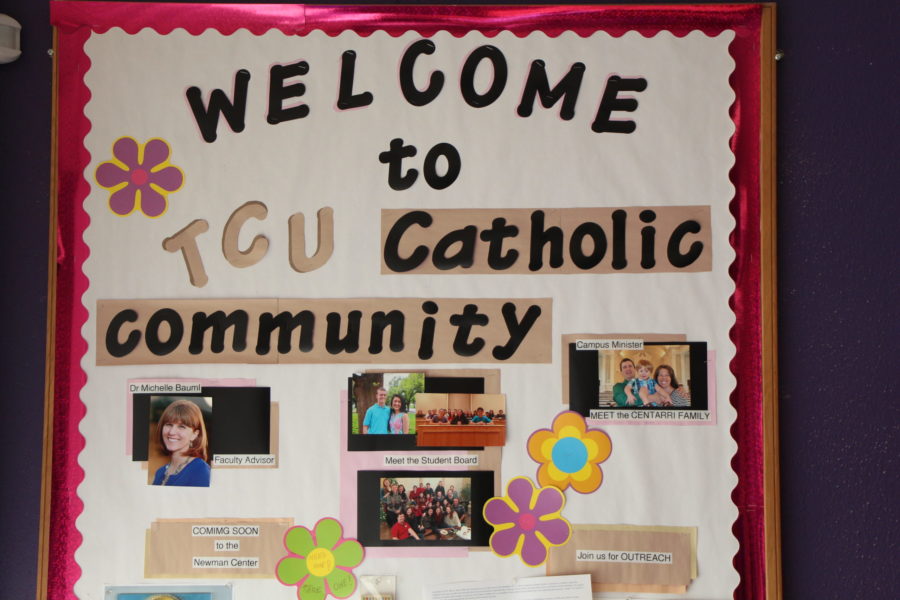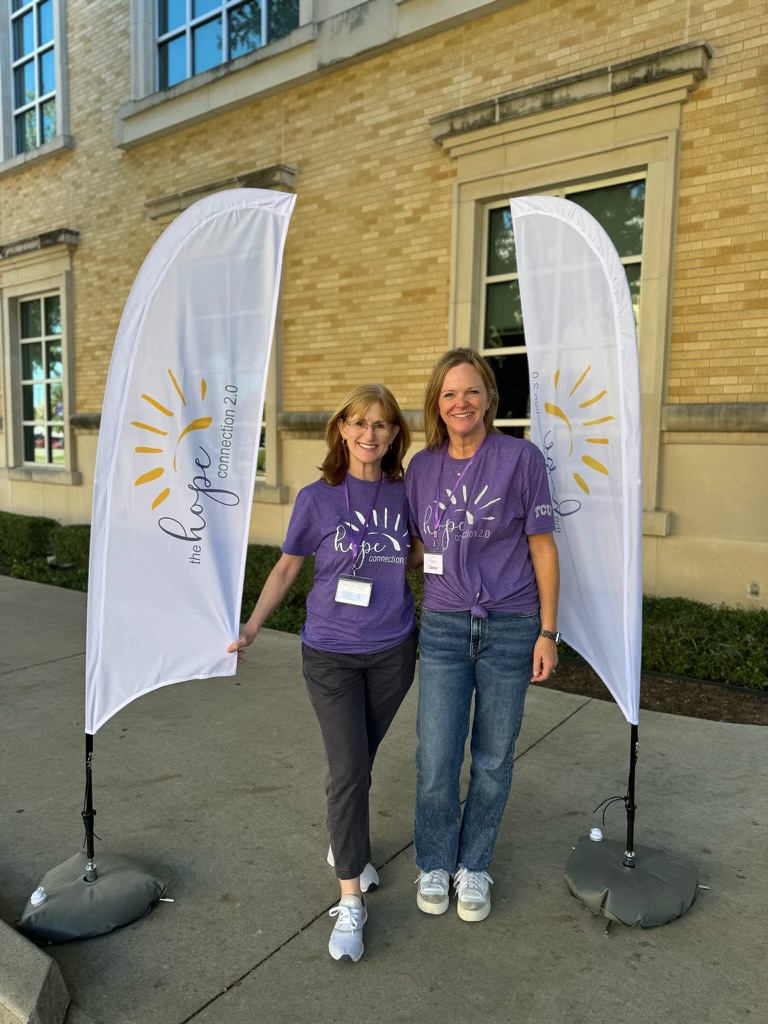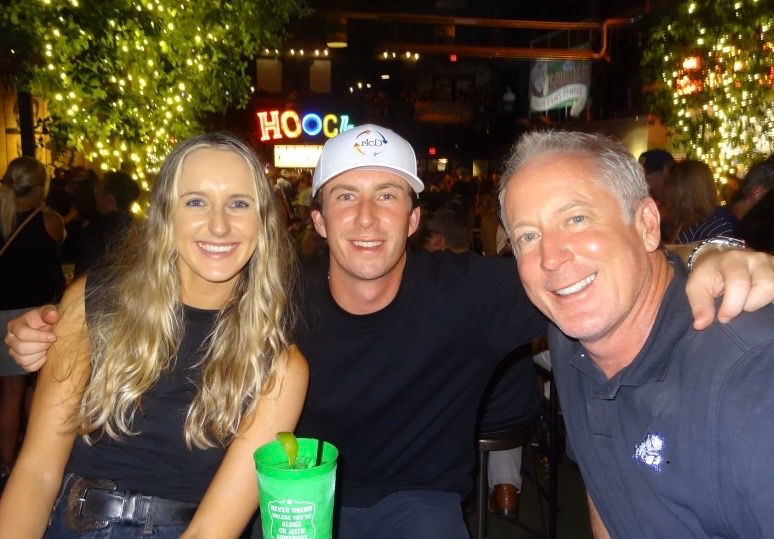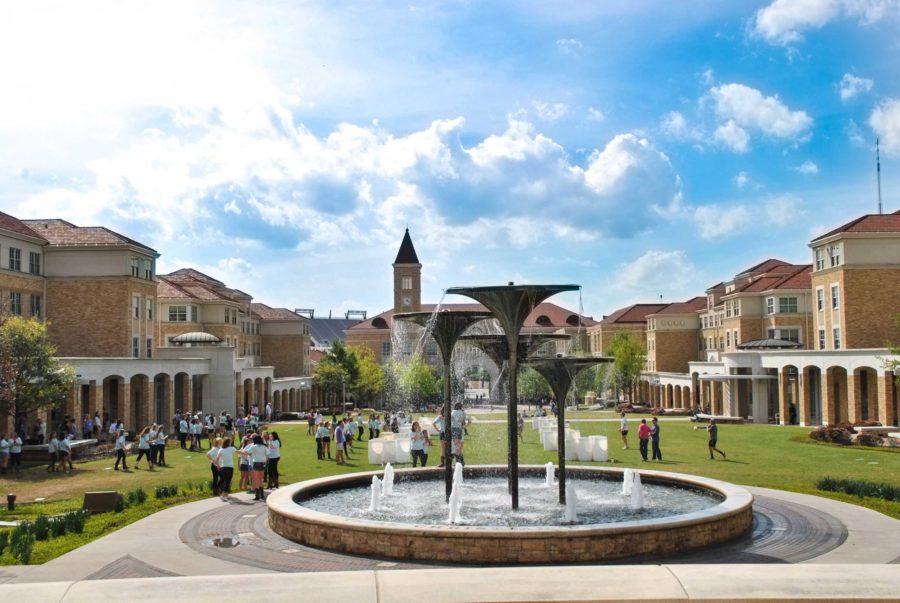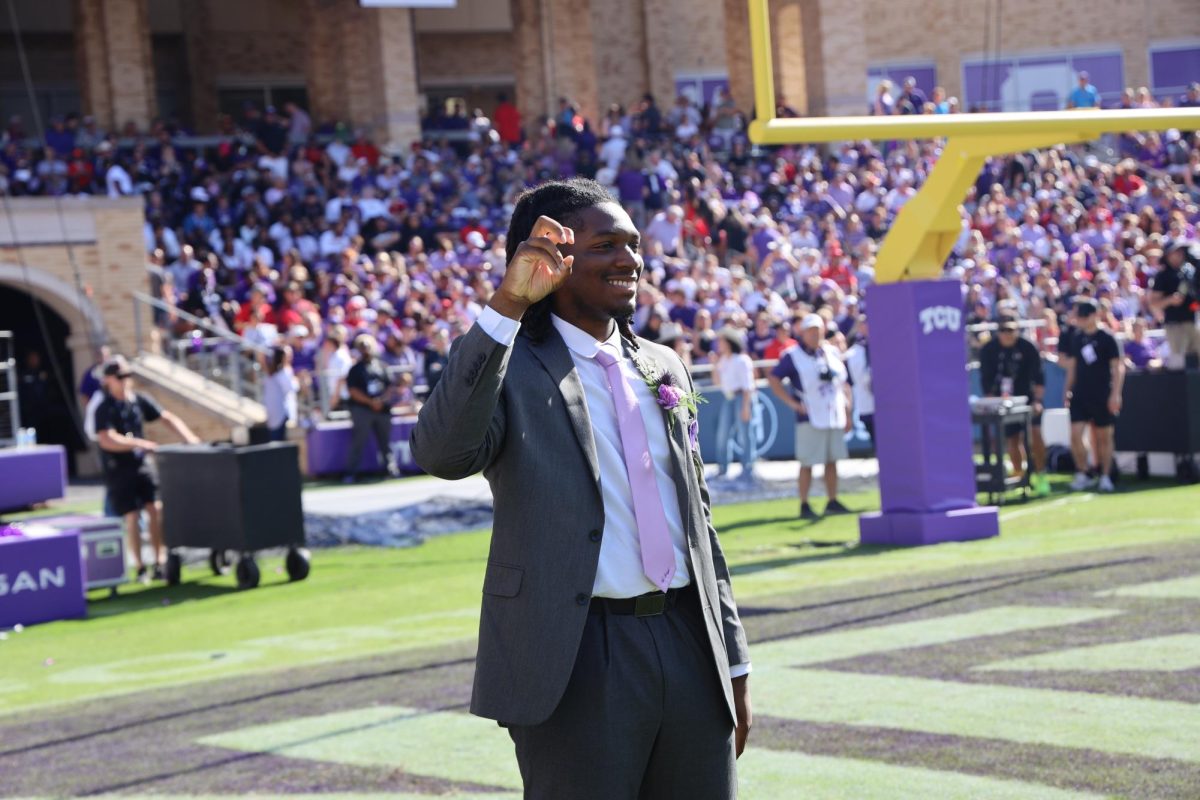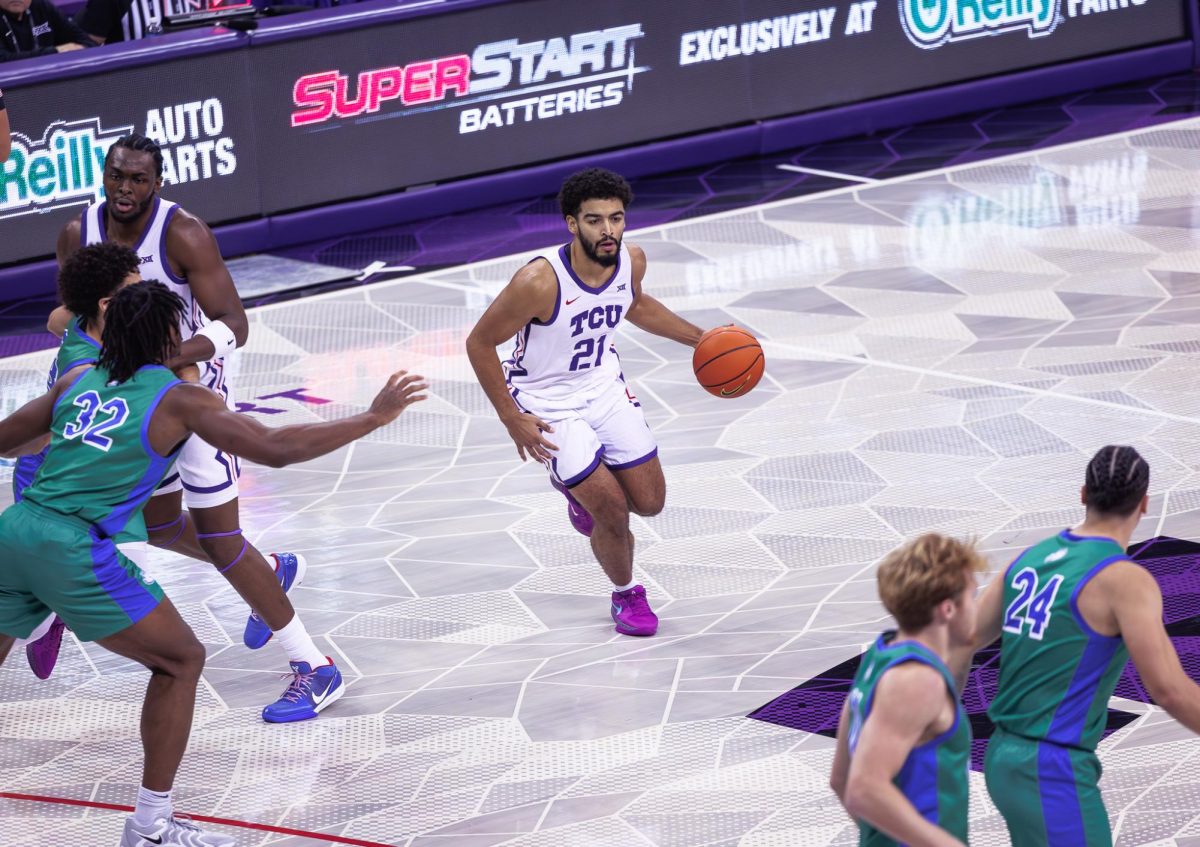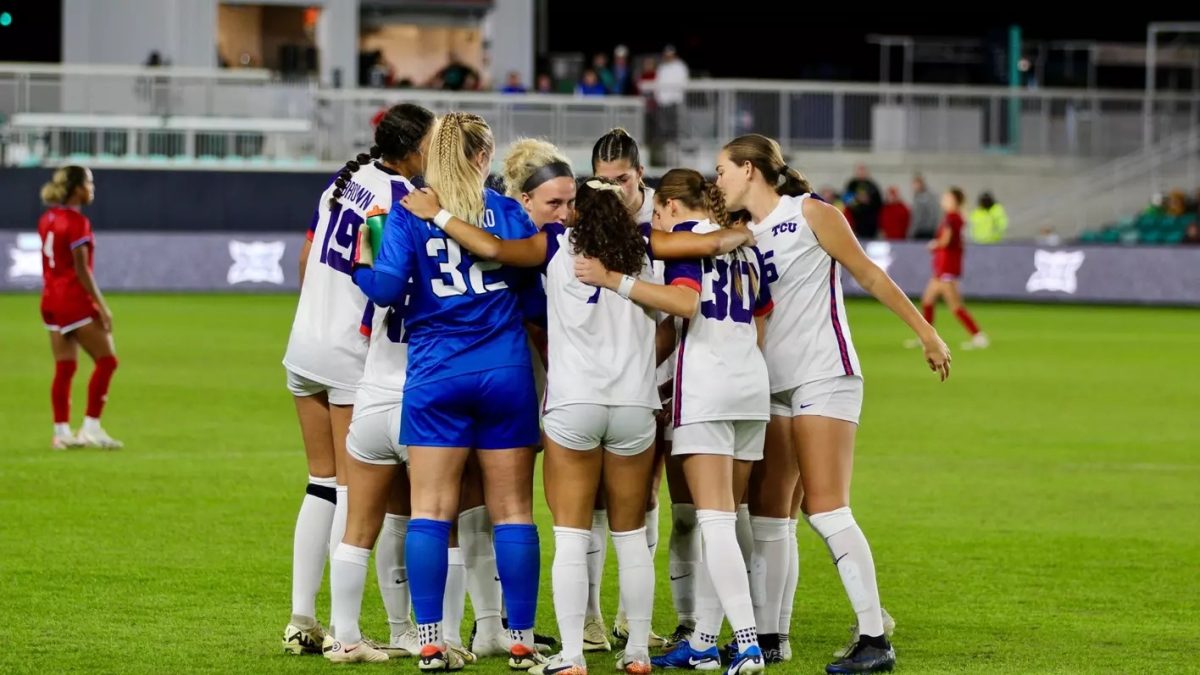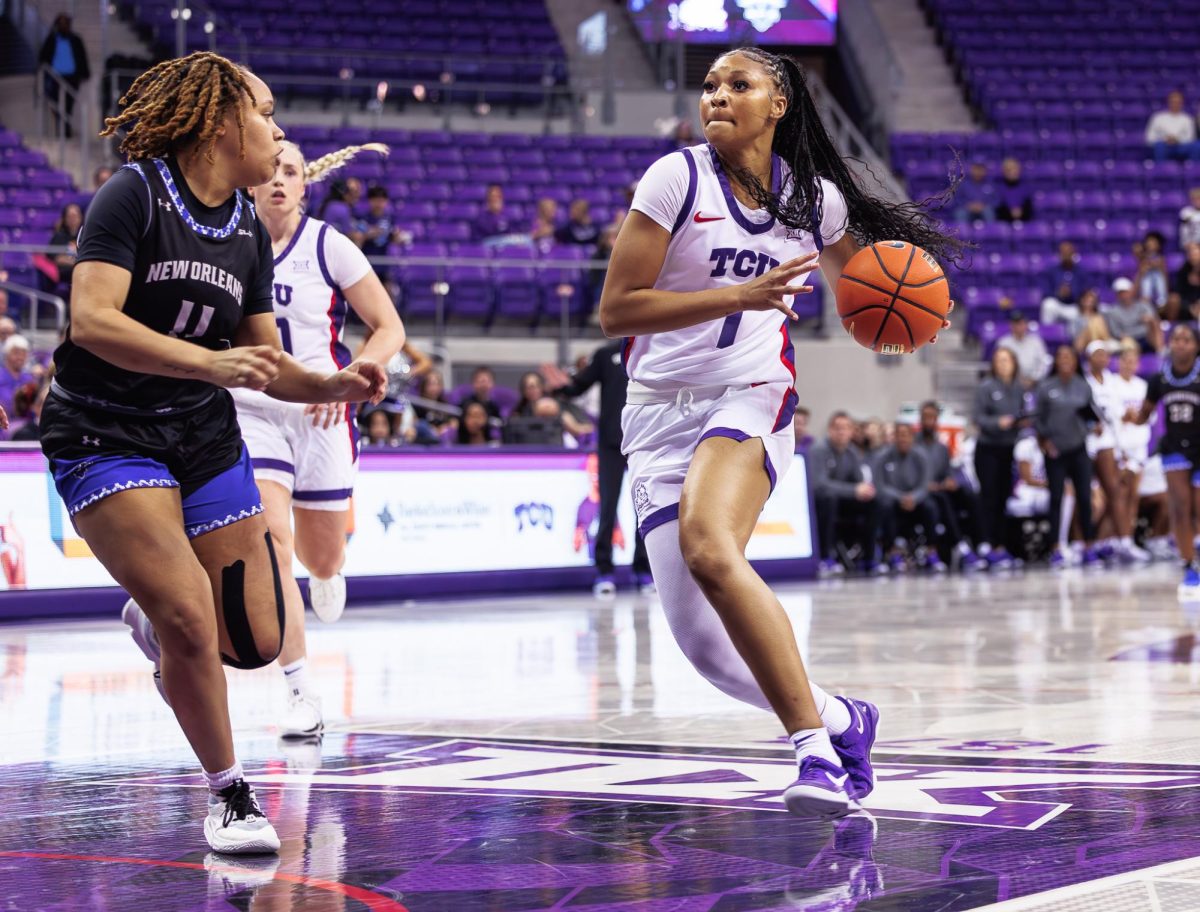TCU aims to support all aspects of students’ lives, including their spiritual development, but members of Religious & Spiritual Life (RSL) have some limitations, especially when it comes to filling positions of leadership for represented denominations on campus, including the Catholic community.
Catholic individuals make up 33 percent of the student population who claimed a religious preference, said the Rev. Angela Kaufman, TCU’s campus minister.
According to the 2018 Fact Book, there are more than 2,300 Catholic students at TCU.
Despite these statistics, there has not been a dedicated Catholic priest on campus since 2017.
The previous Catholic priest who served TCU was Rev. James Wilcox. The Catholic Diocese of Fort Worth reassigned him in 2017. Before Wilcox, the Rev. Charles Calabrese served as the Catholic campus chaplain, leaving in 2015.
Originally on loan from a diocese in Ohio just for one year, Calabrese was permitted to stay on campus for 30 years.
“Even the people that weren’t Catholic that I knew, they admired him and respected him just because he had been there for so long,” said Jake Harris, who graduated from TCU in 2014. “He was like an institution.”
Harris said his relationship with Calabrese grew when they were working together to plan the Awakening retreats. Harris, who converted to Catholicism during his time at TCU, said he admired the priest’s ability to be committed to the task at hand while at the same time being available to talk with students.
The Rev. Todd Boling, TCU’s senior associate chaplain, worked with Calabrese for four years and said he was dedicated to his work, sometimes staying on campus later than any other religious officials.
“Father Charlie always did a great job of listening, of being present to what the person might be bringing to him and offering the simplest form of wisdom available — but it felt like the most profound thing you’d ever heard,” Boling said.
Boling said the two priests had different styles of delivering mass; Calabrese had a more relaxed approach, and Wilcox had a more traditional method, something he said attracted different types of students.
Wilcox also was passionate about helping students understand the Catholic doctrine and he played a role in making adoration more prevalent across campus, Kaufman said.
The reasons why both Wilcox and Calabrese left TCU are private canonical matters only the bishop knows, said Marlon De La Torre, the department director of evangelization and catechesis for the Catholic Diocese of Fort Worth. De La Torre is responsible for overseeing campus ministries, including coordinating with campus officials.
While RSL has requested a Catholic campus minister, it is not responsible for finding a priest.
De La Torre said the Rev. Michael Fors Olson, the bishop of the diocese, will decide whom to assign to TCU and whether that person would be a full-time or part-time chaplain.
He added that positions at parishes are filled before positions at campus ministries and while he does not know when the bishop will decide which priest will be assigned to TCU, appointments for campus ministries are usually made in the spring and go into effect the following fall. He thinks it is unlikely a new priest will be assigned to TCU before next fall.
Boling, who oversees the process of vetting campus ministers at TCU, said the process of adding a new religious minister to the TCU community includes background checks and Title IX training, among other steps.
Kaufman added that not every denomination or faith group that approaches TCU with a new minister is accepted; it depends on the needs of the campus community.
While there is not a dedicated clergy member, a couple of priests from local parishes come to campus to hear confession from students and fulfill other duties that can only be performed by ordained men.
Catholics in the TCU community can still attend mass on campus. They also have access to the Newman Center, a place for prayer, fellowship, studying and taking the Eucharist. Tom Centarri, the director of campus ministry, said the Newman Center is open to all students, not just Catholics.
[envira-gallery id=”1216544″]
Centarri, who is serving his fourth year on campus, said his job changed when Wilcox left. For example, Centarri had to start contacting local parishes when they needed food for events. Since this was one of Wilcox’s responsibilities, Centarri said he did not have the connections Wilcox did.
Centarri added that learning to cope without a priest has been difficult but that the students have been successful at taking up leadership positions.
Senior business information systems and supply chain management double major and co-president of TCU Catholic Ryan Lewright said he taught an apologetics class for two years.
The purpose of the class is to instruct Catholics about how to defend their faith, Lewright said.
Lewright said not having anyone to hear confessions is one of the hardest parts of the absence of a dedicated priest on campus.
The co-president said if there were a priest, perhaps there could be more opportunities to go to mass; currently, mass is held once in the morning and once in the evening on Sundays, but students in Greek organizations often are unable to attend the later service.
Junior entrepreneurial management major Adriana Facchina is another student involved in TCU Catholic and the local Catholic community. She taught an apologetics class for one year, serves as a mentor for high school students at Saint Andrew Catholic Church in Fort Worth and regularly attends mass and a Bible study.
Facchina said they have four retreats every year, and although priests come for as long as they can, it would be better to have a priest who could stay throughout the retreat.

